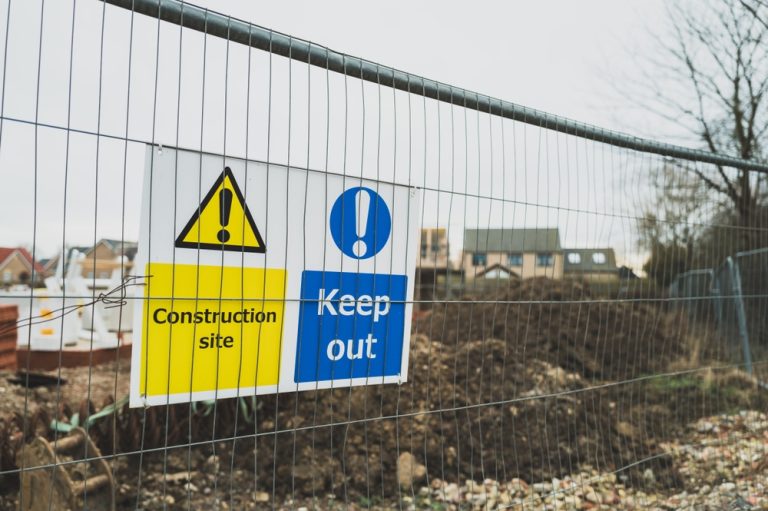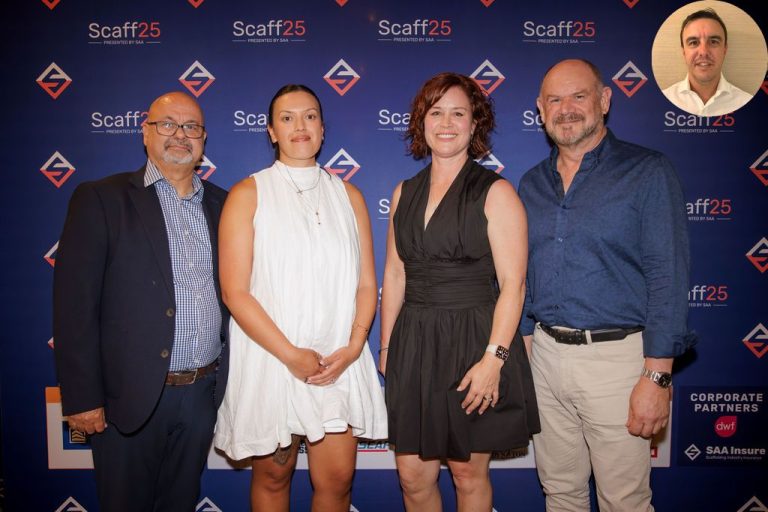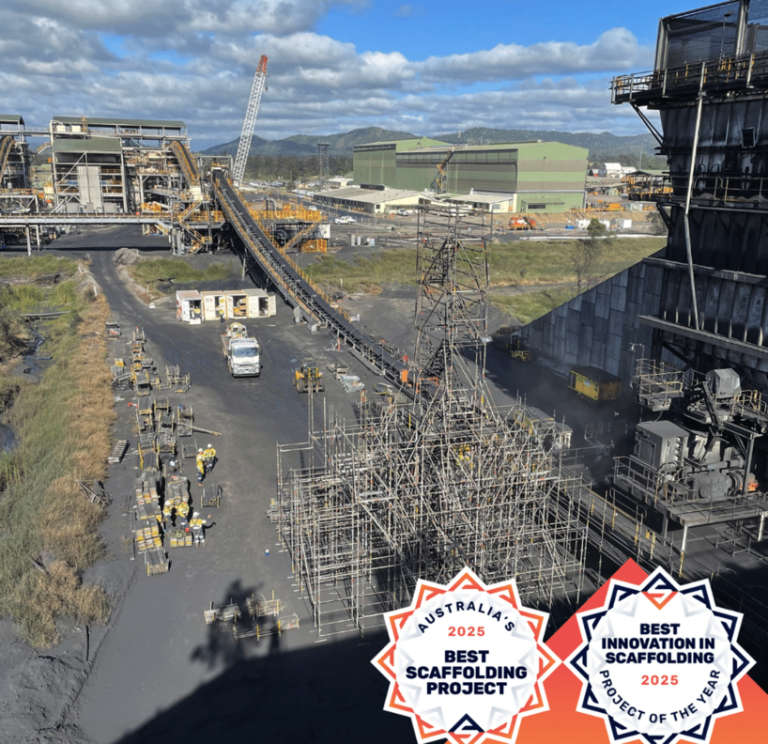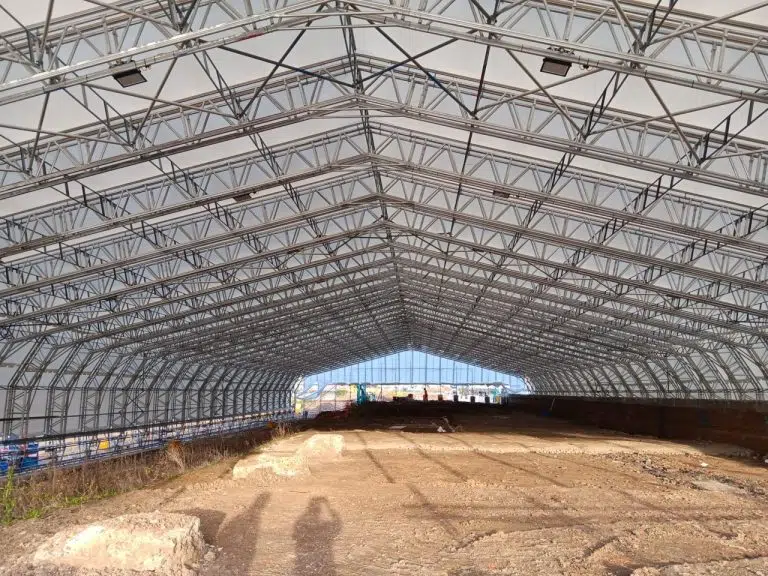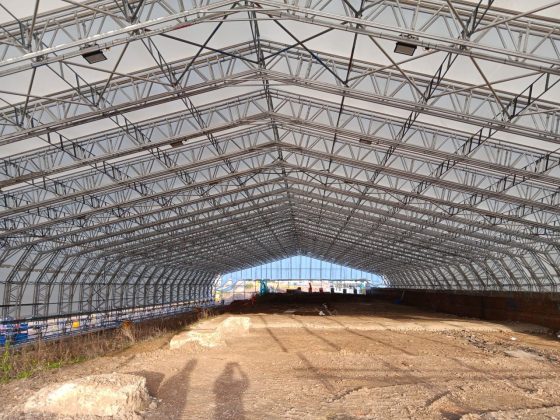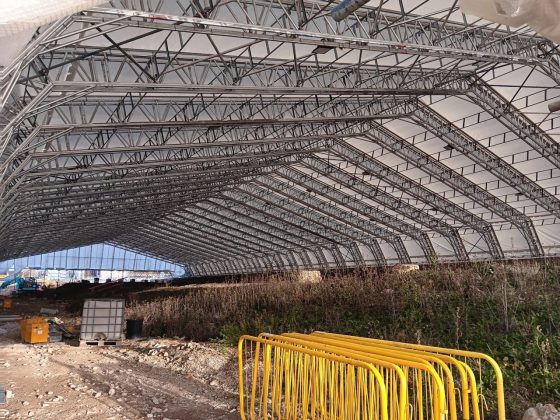Budget blowback: will tax hikes deepen construction downturn?
Scaffolding Association Australia expands leadership team
Subscription required
The Scaffolding Association Australia has appointed two non-executive board members and expanded the role of an existing director as the organisation strengthens its governance structure.
Tina Wieczorek and Erryn O’Brien have joined the board as non-executive members, while executive director Jordy Adshead has taken on the additional role of secretary. The appointments sit alongside the continued leadership of chair Robert Thiess and vice chair Danny Zarb.
Wieczorek brings senior experience from New Zealand’s scaffolding, rigging and specialist trades sectors. She is the former chief executive of Scaffolding, Access and Rigging New Zealand and currently chairs the New Zealand Specialist Trade Contractors Federation.
She has worked on regulatory reform, licensing frameworks and vocational education policy and helped establish formal agreements between SARNZ, the National Access and Scaffolding Confederation in the UK and the SAA.
“It was a privilege to meet so many passionate members in Sydney and hear firsthand about the challenges, innovation and pride that drive this sector forward,” Wieczorek said. “The camaraderie and professionalism across the room reminded me how strong this community truly is.”
O’Brien, the association’s general manager, has more than 16 years’ experience in the industry. She led the Scaffolding Association Queensland before its transition into the national SAA and has managed strategy, campaigns, events and communications.
Adshead, who is director of growth and sustainability at Base Industries, has taken on the secretary role in addition to his existing board position. He developed the concept and structure of SAA’s Stop Scaffold Tampering campaign, which has reached thousands of workers and principal contractors nationwide.
The SAA said the appointments add depth to the leadership group as the sector responds to rising regulatory expectations, skills demands and national collaboration efforts.
North Sea worker dies after incident on Valaris 121 rig
Subscription required

CMA approval clears the way for major HSS ProService and Speedy Hire partnership
Subscription required
 Tom Shorten, CEO of HSS ProService Marketplace, said contractors want certainty and efficiency at a time when project margins are under pressure.
He said the partnership will give users a deeper fleet, a wider footprint and a simpler digital workflow. According to Shorten, the focus is on reducing phone calls, cutting administration and improving visibility of hire spend.
HSS ProService Marketplace is already one of Europe’s largest digital platforms for equipment hire. The company says closer collaboration with Speedy signals a wider shift towards online procurement models in the building services and maintenance sector.
Tom Shorten, CEO of HSS ProService Marketplace, said contractors want certainty and efficiency at a time when project margins are under pressure.
He said the partnership will give users a deeper fleet, a wider footprint and a simpler digital workflow. According to Shorten, the focus is on reducing phone calls, cutting administration and improving visibility of hire spend.
HSS ProService Marketplace is already one of Europe’s largest digital platforms for equipment hire. The company says closer collaboration with Speedy signals a wider shift towards online procurement models in the building services and maintenance sector.Australia’s top scaffolding projects recognised at 2025 industry awards
Subscription required
Craneable scaffold takes top prize
Ausgroup Industrial Services won the year’s two major awards. Innovation in Scaffolding and Australia’s Best Scaffolding Project of the Year. The company was recognised for a craneable scaffold delivered at the Hail Creek site in Queensland. The project addressed the risks of working inside confined Run of Mill bins by reversing the traditional approach. The entire scaffold was pre-assembled inside a custom steel frame and lowered into position in one controlled lift. The method removed almost all confined-space exposure. It reduced installation time and allowed millimetre-level placement in a high-risk environment. Engineers designed the structure to withstand vibration, dynamic forces and the irregular geometry of the bin.Suspended scaffold recognised for work over water
 Central Scaffolding & Rigging Services won Best Industrial Scaffolding Project of the Year. The company installed a suspended scaffold at a live operational wharf, where tidal movement and restricted access prevented any build from below.
Using Layher Allround, Flex Beam and tube-and-coupler systems, the team produced a balanced platform over open water. The design accounted for corrosion risks, tidal clearance and structural loading. Judges described it as a strong example of industrial planning and safe working near marine environments.
Central Scaffolding & Rigging Services won Best Industrial Scaffolding Project of the Year. The company installed a suspended scaffold at a live operational wharf, where tidal movement and restricted access prevented any build from below.
Using Layher Allround, Flex Beam and tube-and-coupler systems, the team produced a balanced platform over open water. The design accounted for corrosion risks, tidal clearance and structural loading. Judges described it as a strong example of industrial planning and safe working near marine environments.
Civil award highlights heritage restrictions at Merri Creek
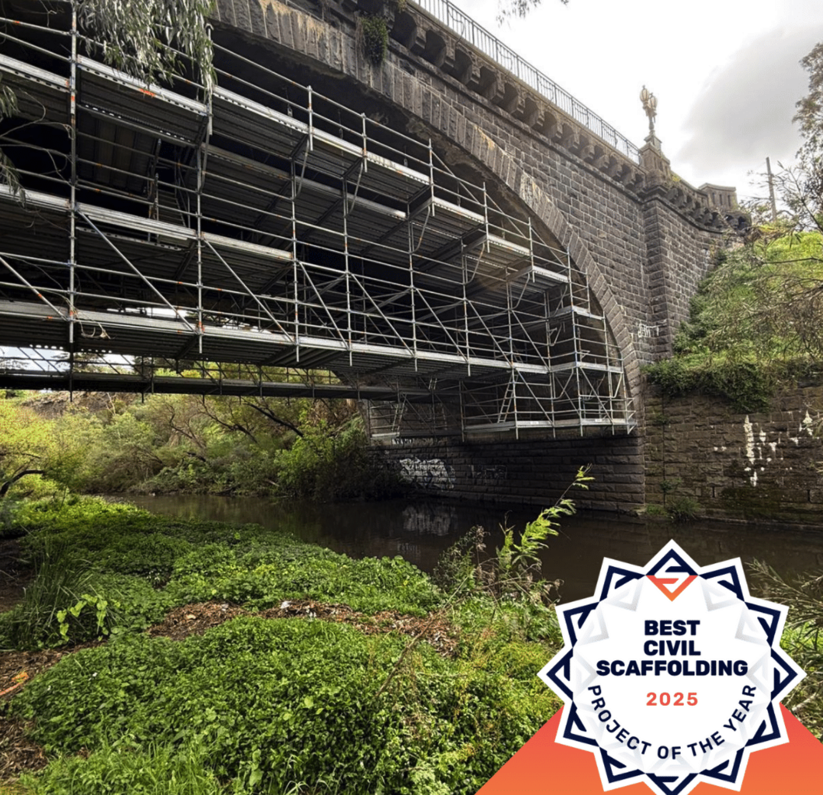 APS Industrial Services received Best Civil Scaffolding Project of the Year for its access system beneath the 1867 Merri Creek Bridge in Victoria. With no ability to fix into the bluestone structure or touch the waterway, APS developed a custom anchoring system mounted under the bridge deck.
The restricted location required rope access support and detailed environmental controls. Traffic above remained open throughout the works.
APS Industrial Services received Best Civil Scaffolding Project of the Year for its access system beneath the 1867 Merri Creek Bridge in Victoria. With no ability to fix into the bluestone structure or touch the waterway, APS developed a custom anchoring system mounted under the bridge deck.
The restricted location required rope access support and detailed environmental controls. Traffic above remained open throughout the works.
Inner-city chimney project wins commercial category
Granted Access won Best Commercial Scaffolding Project of the Year. The company wrapped a 40-metre heritage chimney in Collingwood, where only 700mm of space separated the structure from nearby apartment balconies. A freestanding scaffold supported by a 10-kPa suspended gantry deck allowed remedial works without touching the fragile brickwork. The design followed two years of planning with structural engineers.
A freestanding scaffold supported by a 10-kPa suspended gantry deck allowed remedial works without touching the fragile brickwork. The design followed two years of planning with structural engineers.
Small-scale award recognises suspended aluminium design
AN-CO Australia won Best Small-Scale Scaffolding Project of the Year for its access solution at Liberty Place in Sydney. The team delivered a fully suspended aluminium scaffold reinforced with steel and hung from lattice beams above the roofline. Rope access methods were used to install and remove the system. The work preserved the heritage facade and avoided drill fixings.Tank swing-stage innovation earns ScafWest dual recognition
ScafWest received Best Aluminium and Swing Stage Project of the Year for its platform inside a fertiliser tank. The team assembled an 11-metre circular swing stage from curved aluminium trusses, with all components carried through a small manhole. A multi-hoist lifting system allowed full 360-degree access inside the tank. The design was fully mocked up and load-tested before deployment.Digital modelling approach secures design award
Scaffold Studio won Best Scaffold Design Project of the Year for its work at Reflections by the Sea. Using 3D laser scanning and ScaffPlan modelling, the team produced a digital twin of the site. This allowed load analysis and clash detection before installation. The final solution was a cantilevered scaffold suspended above pools, balconies and public walkways. Counterweights, lifting rigs and tie systems formed part of the design.Advanced mast climber system recognised at Collins Arch
Standard Access won Best Mast Climber Project of the Year for its work on Melbourne’s Collins Arch reclad programme. The hybrid system combined mast climbers, swing stages and tilting platforms to follow curved and negative-angle façades. The project was completed while the hotel and offices inside remained in use. Noise and privacy management formed part of the staging.Sector marks year of technical progress
Organisers say this year’s awards highlight a high standard of work across the scaffolding sector. The projects span heritage protection, industrial access, digital engineering and complex façade works. The Scaffolding Association Australia thanked entrants, judges and attendees for recognising the people and teams leading the industry forward.In Pictures: GKR completes major temporary roof structure at HS2 Euston
- Roof span: 32 metres
- Apex height: 9.5 metres
- Roof length: 76 metres
- Track length: 130 metres
- Weight: 98.4 tonnes
- Build time: eight weeks
UK Construction output edges up just 0.1% in the third quarter
Hong Kong launches construction safety drive after serious incidents
4D Structures and PERI UK join forces to build one of Glasgow’s tallest towers
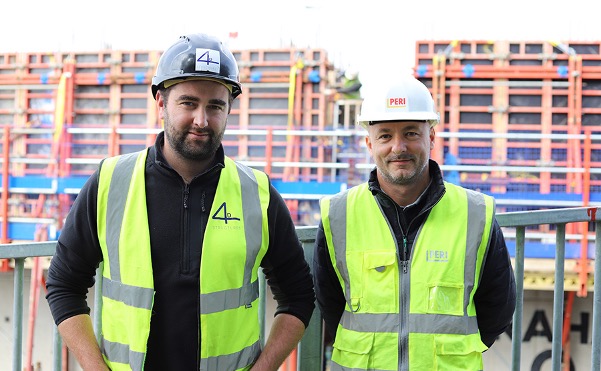
ScaffPlan launches 3D scaffold design tool within SketchUp
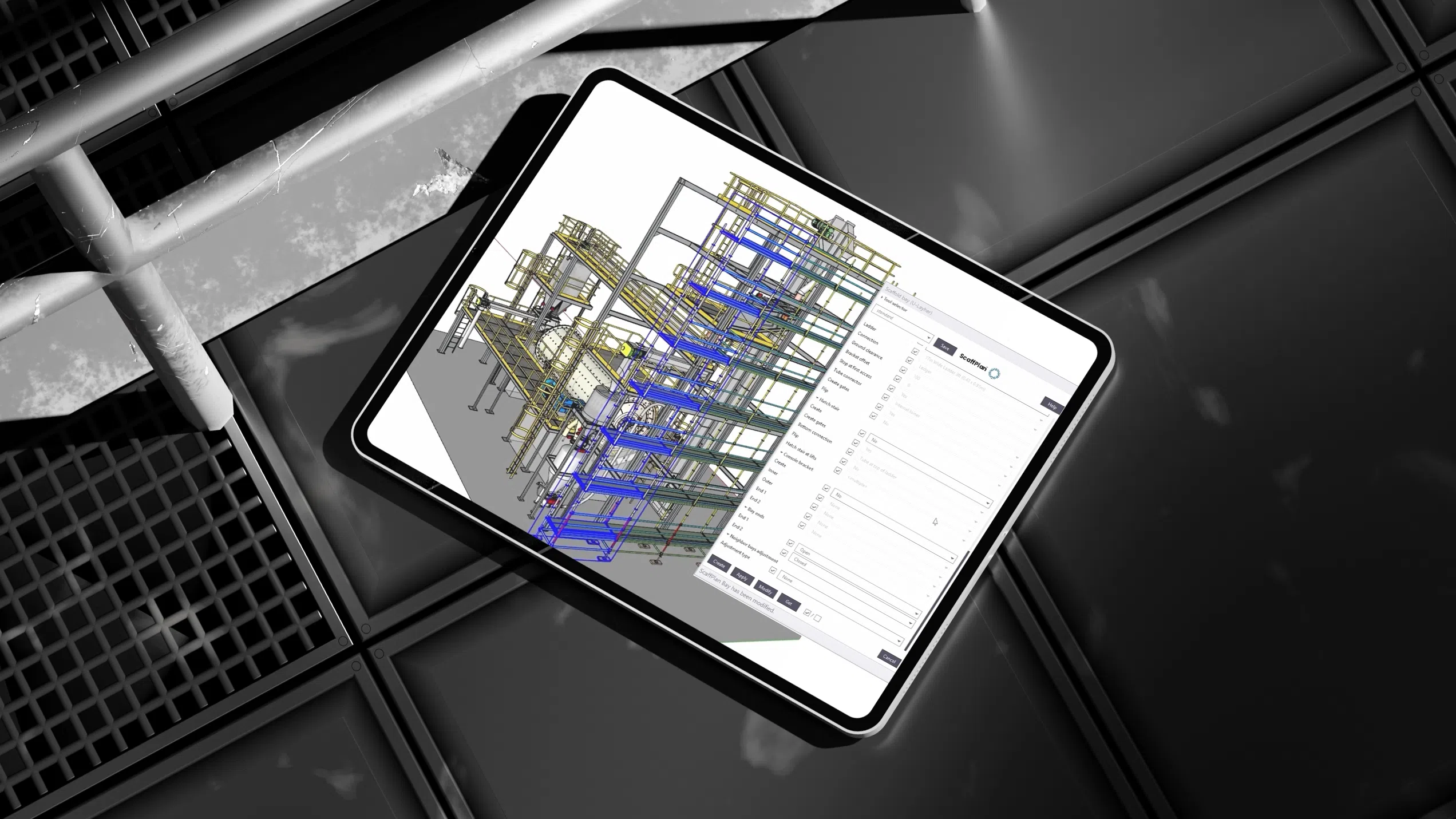 “Every wasted hour on site starts with unclear planning,” Boyes added. “ScaffPlan gives scaffolders full control over design and communication, ensuring everyone, from estimator to crew, works from the same clear plan.”
The company says the SketchUp version is best suited for residential, commercial, and industrial access projects. Larger contractors managing BIM-integrated workflows may prefer ScaffPlan for Tekla.
ScaffPlan for SketchUp launched globally on 10 November 2025.
Watch the demo: scaffplan.com/demo/sketchup
“Every wasted hour on site starts with unclear planning,” Boyes added. “ScaffPlan gives scaffolders full control over design and communication, ensuring everyone, from estimator to crew, works from the same clear plan.”
The company says the SketchUp version is best suited for residential, commercial, and industrial access projects. Larger contractors managing BIM-integrated workflows may prefer ScaffPlan for Tekla.
ScaffPlan for SketchUp launched globally on 10 November 2025.
Watch the demo: scaffplan.com/demo/sketchup 